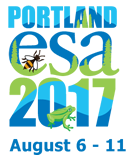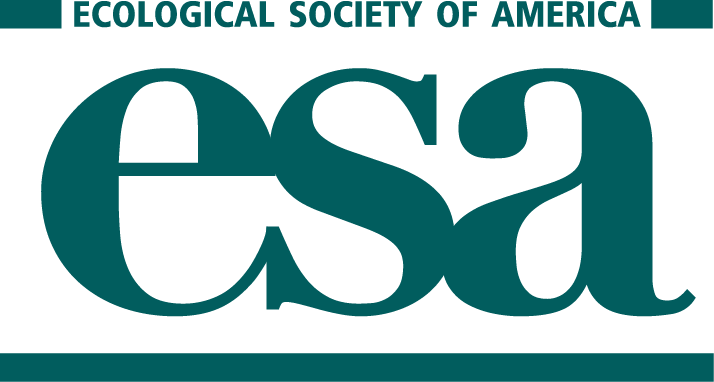Program
- Search the online program
- Browse the program by day or session type
- Author index
The 2017 program includes abstracts for over 3,000 research presentations. ESA’s press office is available to help reporters navigate the program and find topics of interest. Contact llester@esa.org for assistance.
Selected Topics
- pollinators
- birds
- green roofs
- life in the soil
- ocean systems
- fish & fisheries
- lions & tigers & bears
- disease ecology
- restoration
- urban ecology
- ecosystem services
Overview
Plenary Sessions highlight leaders in the field of ecology. Open to the public.
Ignite-style: these fast-paced sessions explore new ideas or introduce new research tools. Ignite-style sessions are designed to generate discussion. Speakers are not required to present new research results, but are held to a strict format: five minutes for 20 slides, which advance automatically every 15 seconds. An informal discussion follows a set of ten presentations, linked by topic.
Symposia: bring together current perceptions on high level concepts or problems through six half-hour presentations, followed by a panel discussion.
Organized Talks: session organizers invite ten presenters to speak for 20 minutes about a specific place, research area, or research problem.
Contributed Talks: 20–minute presentations of new research results, grouped by topic or study area.
Organized and Contributed Posters: researchers are on hand to talk one-on-one about their work the exhibition hall. Sessions are held in the Exhibition Hall, Mon-Thursday from 4:30 to 6:30 pm. A special session for late-breaking research results meets Friday morning, 8:30 am to noon.
Workshops: interactive programs to teach special skills and knowledge.
Special Sessions: a grab bag of discussion groups and hands-on activities. This year’s offerings include discussion of ecological knowledge and faith communities, break-out groups on creativity in everyday science, and a visit from local tribal representatives.
Field Trips: local members of the Ecological Society take visitors on guided ecological tours out of the convention center. This year’s trips are headed to Mt. Rainier, Mt. St. Helens, and the Columbia River Gorge. Tours of the city will focus on art, infrastructure, ecoroofs, and ecosystem services. ESA does not waive field trip fees for media, but public affairs may be able to make special arrangements for reporters with a serious interest in covering the trip. Please get in touch with us if you want to report on a field trip.



